第35章 CHAPTER XXV.
Random Recollections.--Madame de Montespan Withdraws from Politics.--The Queen's Dowry.--First Campaign in Flanders.--The Queen Meets the King.--Some One Else Sees Him First.--The Queen's Anger at La Valliere.
In compiling these Memoirs, I have never pretended to keep a strictly regular diary, where events are set down chronologically and in their proper order. I write as I recollect; some of my recollections are chronicled sooner, and others later. Thus it happens that the King's first conquests are only now mentioned in the present chapter, although they occurred in the year 1667, at the beginning of my credit and my favour.
I was naturally inclined for politics, and should have liked the hazard of the game; but I suppose that the King considered me more frivolous and giddy than I really was, for, despite the strong friendship with which he has honoured me, he has never been gracious enough to initiate me into the secrets of the Cabinet and the State.
If this sort of exclusion or ostracism served to wound my self-respect, it nevertheless had its special advantage for me, for in epochs less glorious or less brilliant (that is to say, in times of failure), they could never cavil at advice or counsel which I had given, nor blame me for the shortcomings of my proteges or creatures.
The King was born ambitious. This prince will not admit it; he gives a thousand reasons in justification of his conquests. But the desire for conquest proves him to be a conqueror, and one is not a conqueror without being ambitious. I think I can explain myself by mentioning the treaty drawn up at the time of his marriage. It was stipulated that the Infanta should have rights over the Netherlands, then possessed by Don Balthazar, Prince of Spain. But it was agreed to give the Princess Maria Theresa a handsome dowry, in lieu of which she signed a paper renouncing her rights.
Her father, King Philip IV., died at the close of the year 1665, and the Queen-mother besought our King not to take advantage of the minority of the young Charles II., his brother-in-law, by troubling Spain afresh with his pretensions.
Hardly had Anne of Austria been interred, when the King informed the Spanish Court of his claims. In the spring of the following year, he himself led an army into Spanish Flanders, where his appearance was not expected. These fine provinces, badly provisioned and badly fortified, made but a merely formal resistance to Conde, Turenne, Crequi, and all our illustrious generals, who, led by the King in person, wrought the troops to a wild pitch of enthusiasm.
The King had left the Infanta, his wife, at Compiegne, and it was there that we awaited either news of the army or orders to advance.
From Compiegne we went to La Fere, where we heard that the King was coming to receive us. Suddenly it was rumoured that the Duchesse de la Valliere had just arrived, and that she was acting in accordance with orders received.
The Queen began to weep, and, sobbing, bewailed her destiny. She was seized by convulsions and violent retching, much to the alarm of her ladies and the physicians.
Next day, after mass, the Duchesse and the Marquise de la Valliere came to make their courtesy to the Queen, who, staring at them, said not a word. When dinner-time came, she gave orders that no food should be served to them, but the officials supplied this to them in secret, fearing to be compromised.
In the coach, the Queen complained greatly of Mademoiselle de la Valliere, and the Princesse de Bade, one of the ladies-in-waiting, said to me, "Could you have believed that, with such gentleness, one could also display such impudence?" The Duchesse de Montausier, I know not why, expressed herself to me in the same terms of amazement. I replied that, "Were I in that fair lady's place, I should dare to show myself least of all to the Queen, for fear of grieving her Majesty." I was often rebuked afterwards for this speech, which, I admit, I delivered somewhat thoughtlessly.
On leaving La Fere, the Queen gave particular orders to let the Duchess have no relays, so that she could not follow; but the Master of the Horse had caused these to be brought to her from Versailles, so nothing was wanting.
On putting my head out of window, when we turned a corner of the road, Isaw that La Valliere's coach, with six horses, was following quite close behind; but I took care not to tell the Queen, who believed those ladies were a long way off.
All at once, on a height, we saw a body of horsemen approaching. The King could be plainly distinguished, riding at their head. La Valliere's coach immediately left the main road, and drove across country, while the Queen called out to have it stopped; but the King embraced its occupants, and then it drove off at a gallop to a chateau already fixed upon for its reception.
I like to be just, and it is my duty to be so. This mark of irreverence towards the Queen is the only one for which Mademoiselle de la Valliere can be blamed; but she would never have done such a thing of her own accord; it was all the fault of the Marquise, blinded as she was by ambition.